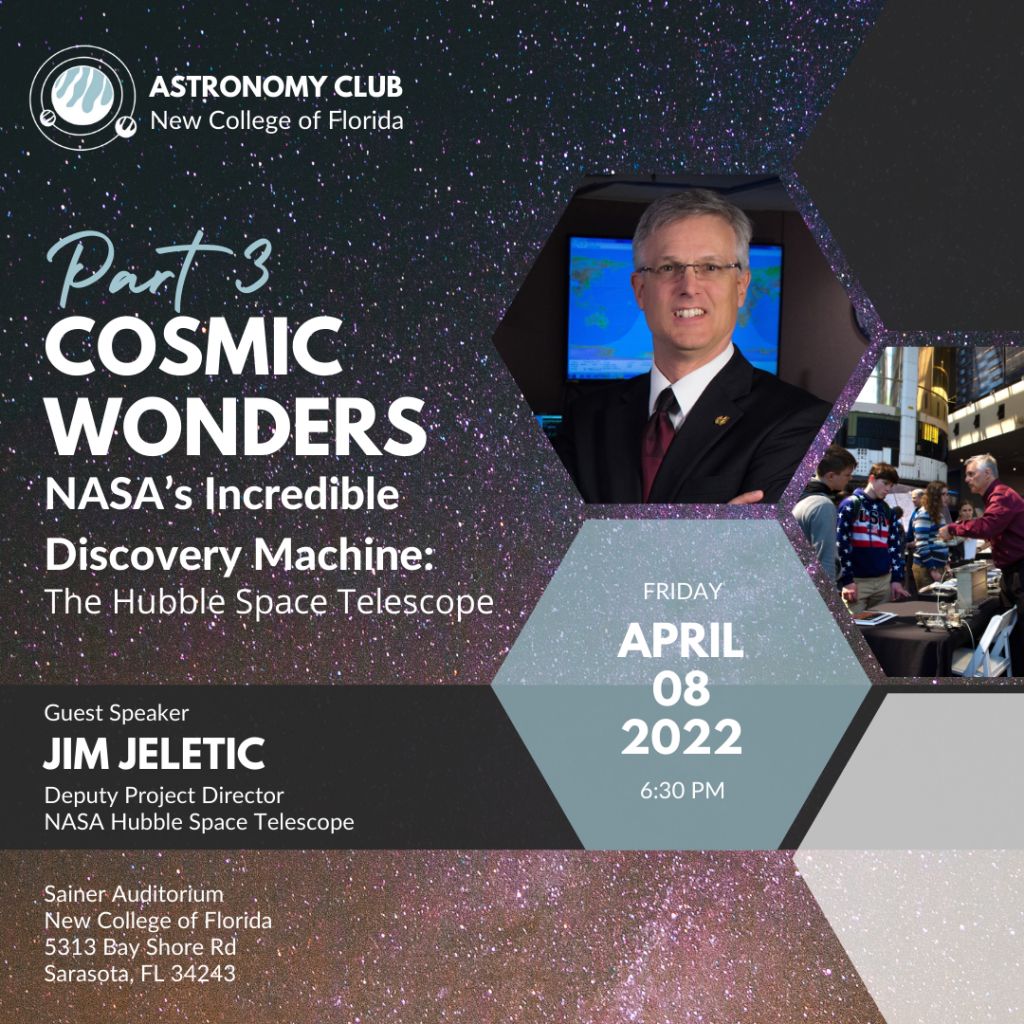
The Hubble Space Telescope has changed humankind’s fundamental understanding of the Universe. Even after 31 years of operations in space, Hubble stands at the peak of its scientific capability, in large part due to five space shuttle servicing missions in which astronauts replaced, repaired, and upgraded its hardware. This presentation will provide a high-level overview of the observatory’s history and design, discuss the five servicing missions, and present highlights of its scientific discoveries with their stunning images.
Jim Jeletic is the deputy project manager for the Hubble Space Telescope mission at NASA’s Goddard Space Flight Center. He has spent 24 years on the Hubble project, initially managing its science operations and overseeing the administration and budget of its science research grant program. Jim started his career at NASA in 1984 developing orbit, attitude and mission planning ground systems in the flight dynamics organization, becoming the head of its software development branch and a co-director of NASA’s Software Engineering Laboratory. He has supported or led various activities related to the establishment of the science and operations center for the Hubble follow-on mission, the James Webb Space Telescope, as well as studies and proposals for advanced X-ray telescope missions. Jim was born and raised in Avalon, Pennsylvania, a suburb of Pittsburgh. He earned a Bachelor of Science and Engineering degree in computer science and engineering from the University of Pennsylvania, and a master’s degree in engineering management from the George Washington University. He has received seven NASA innovation awards for his early work in visualization software that was used for displaying spacecraft and space environment data and received a NASA Exceptional Service award for his work on Hubble science operations and outreach.
This event is presented by the New College of Florida Astronomy Club.
